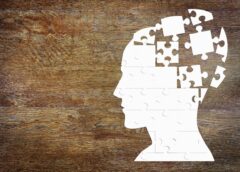Have you ever wondered how eating chocolate affects your brain? Or do you wonder how your brain can distinguish between familiar and unfamiliar things? Do you want to know how your brain learned to use tools, how brain games might help with car sickness, or what your brain do when you’re asleep? If so, then enjoy this curated collection of articles about neuroscience and how the human brain works. Our neuroscientists answer your questions.
How a Special Smell Triggers a Memory
Does the smell of freshly baked cookies make you think of your (or someone’s) grandmother’s house? Neuroscientists call this type of thing an associative memory and it’s a big part of how your brain works.
What do you think about when you sleep?
Sleep is when we process the experiences of the day and form long-term memories. But how does your brain work when it’s deciding which memories to keep and which to get rid of?
Why Don’t We Have Memories of Early Childhood?
The hippocampus helps us form memories, but babies may have a different primary use for it, according to a new research study.
Brain Pathways and Depression: What’s the Connection?
Cases of depression are on the rise. Now, scientists are busy uncovering new neuroscience mechanisms underlying the cause of depression.
How Does EMDR Therapy Work?
Eye-movement desensitization and reprocessing (EMDR) therapy helps people with PTSD by changing the way their brains remember traumatic events.
Does Brain Cholesterol Control Alzheimer’s?
Brain cholesterol levels may be the key to understanding and treating Alzheimer’s disease, according to a new study.
How Do Neurons Tell the Brain What is Familiar?
Neurons send visual information to the brain, but just how it gets processed is a complexity that researchers are getting closer to understanding.
Neuromodulation: How We Manipulate Brain Cells
Neuromodulation to treat illnesses has been limited by being too invasive or too general, but new research on ultrasound shows promise.
How Our Brains Learn to Use Tools
Scientists in Munich have examined the network in our brains that enables us to use tools, and the findings might help stroke victims.
How the Placebo Effect “Tricks” the Brain
You have probably heard of the placebo effect, but what is it and how does it work? Can something that’s in our heads actually provide relief?
Cocoa Flavanols Could Boost Your Brainpower
Chocolate really is good for you! The flavanols found in cocoa can improve brain oxygenation and performance on complex tasks even in healthy adults.
Brain Games Relieve Motion Sickness
Research suggests that doing brain training exercises to improve visuospatial skills could help reduce motion sickness.
Action Video Games Boost Sensorimotor Skills
People who play action video games learn new sensorimotor skills more quickly than non-gamers do, according to a study from the University of Toronto.
Video Games Hone Visual Attention Skills
Video games may help players practice how much visual information their brains can process at once, according to a new study.
What Loneliness Looks Like in the Brain
Loneliness is recognizable in brain maps that capture levels of closeness with others and feelings of similarity to or difference from others.
The neurobiology of anorexia
Anorexia’s connection to dopamine and serotonin is the focus of a new study on how brain signals affect eating behaviors.
Panic! In the Brain: What Causes Panic Attacks?
Panic attacks aren’t yet fully understood, but researchers have found a new neuronal pathway that may hold some answers.
Childbirth Is Both Life-Changing and Brain-Changing
Neuroscientists studying childbirth found different effects on brain cortex volume for those recovering from a natural delivery or C-section.
Feeling Brain Fog? It Could Be in Your Blood
Slowed cognitive functioning, also called brain fog, sometimes accompanies long COVID and could be the result of breaches in a cellular barrier protecting the brain.

